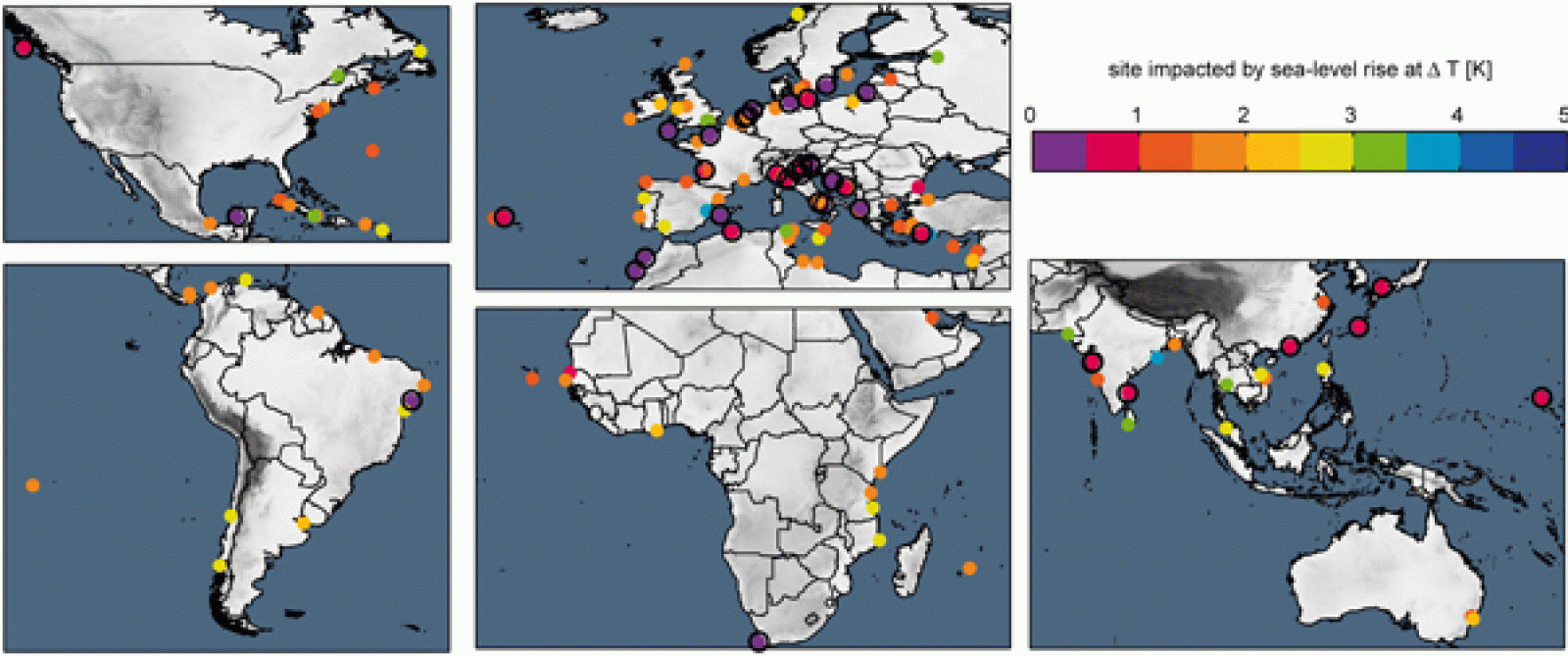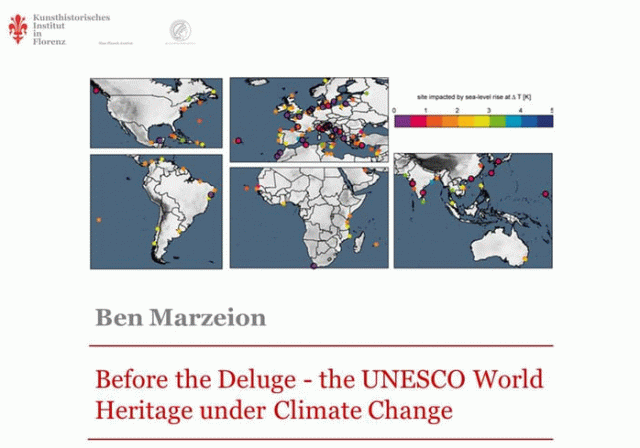The physical processes behind the global rise of the oceans are gradual and slow, but they will continue for a very long time. While public interest so far was focused mainly on ecological and economical impacts of climate change, in this talk we will put the focus on the long-term prospect of the cultural heritage of mankind.
In particular, for each degree of global warming, we identify regions where sea-level rise will put UNESCO World Heritage sites at risk throughout the coming centuries.
The UNESCO World Heritage List comprises a total of more than 700 cultural monuments. If global average temperature increases by just one degree Celsius, already more than 40 of these sites will be directly threatened by the water eventually. With a temperature increase of three degrees, about one fifth of the cultural world heritage will be affected.
Because of the strong concentration of the world population along the current coastlines, sea-level rise will also affect the cultural heritage being created now and in the future: seven percent of the world population today live in regions that, without massive protection, will eventually be below sea level if temperatures rise by three degrees.
Given the millennial scale lifetime of carbon dioxide in the atmosphere, our results indicate that fundamental decisions with regard to mankind's cultural heritage are required.
Ben Marzeion studied physical oceanography at the University of Kiel, Germany. In 2006 he obtained a PhD from the University of Bergen, Norway, and continued as a postdoc in Bergen for one year before moving to the Massachusetts Institute of Technology, USA. From 2008 to 2015 he was working at the University of Innsbruck, Austria, in the Department of Atmospheric and Geosciences as an assistant and later associate professor. Since 2015 he is professor for climatology at the University of Bremen.
Marzeion's work concerns global scale glaciology, sea-level rise, water availability, and climate impacts. In all these areas, using a combination of observational methods and mathematical modeling tools, he is particularly interested in studying the interactions between the physical Earth system and society. His recent publications cover, e.g., the natural and anthropogenic causes of the global glacier retreat and sea-level rise, the societal impacts of shrinking glaciers, and the impact of sea-level rise on the cultural heritage of humanity.





